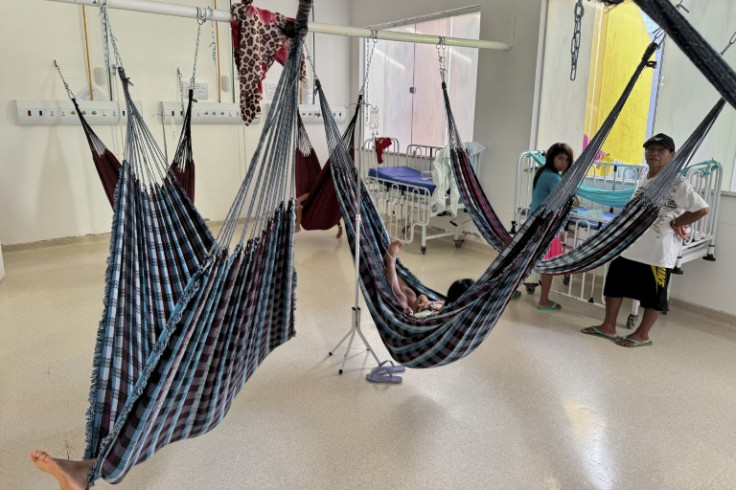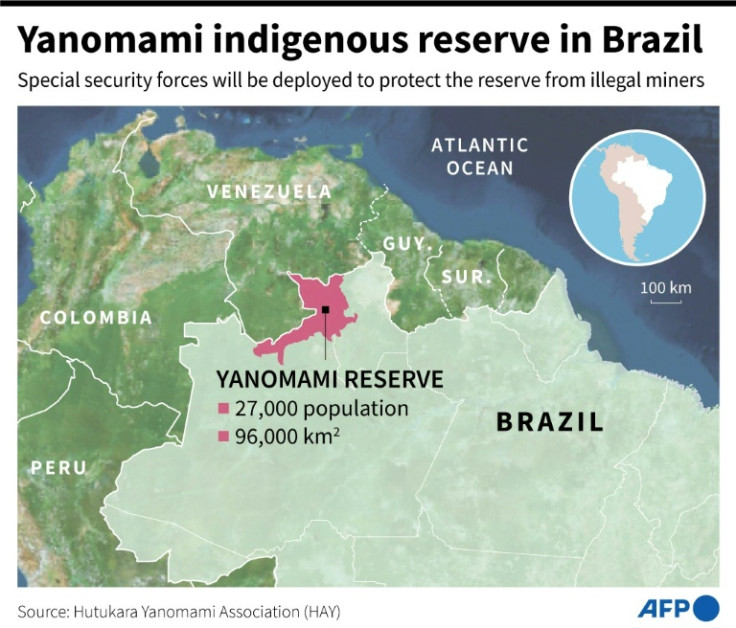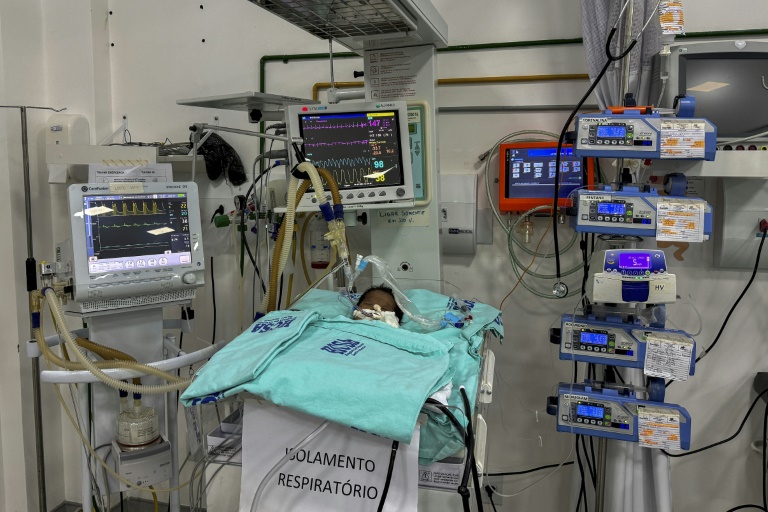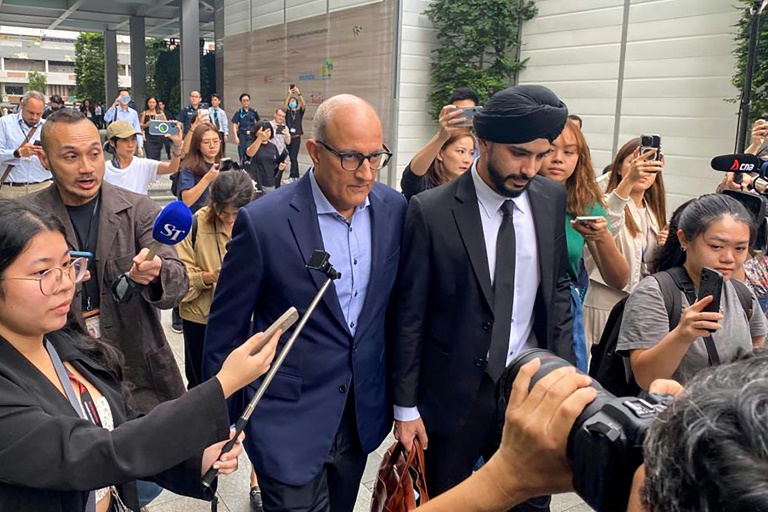The Yanomami Indigenous group are again facing a severe humanitarian crisis blamed on illegal gold miners, despite Brazil’s president deploying the military to wrest back control of their territory.
A year after Luiz Inacio Lula da Silva declared a state of emergency over the isolated group’s plight, images emerging from their Amazon rainforest reservation remain desolate: severely malnourished children being fed through IV tubes in hospital and their staple food source, fish, decimated by the toxic mercury used in the mines.
At least 308 Yanomami died from January to November 2023, half of them children under five, according to health officials.
That is little better than the 343 deaths recorded in 2022.
Cases of malaria among the Yanomami increased by 61 percent last year, and influenza by 640 percent compared to 2022.
Those bleak figures are a problem for Lula, who came to office in January 2023 vowing to do a far better job protecting Brazil’s Indigenous peoples than far-right predecessor Jair Bolsonaro.
One of the veteran leftist’s first actions in office was to deploy the military to expel an estimated 20,000 illegal miners from the Yanomami reservation, a sprawling northern territory bigger than Portugal.
Indigenous leaders and rights activists accuse miners of raping and killing Yanomami inhabitants, poisoning their water with mercury, spreading disease, tearing down virgin rainforest and triggering a food crisis.
Lula ordered the air force to impose a no-fly zone to cut off supplies to the mines, and sent hundreds of police and soldiers to evict the invaders.
Thousands of miners fled as the authorities carried out a total of 400 operations last year, seizing seizing 600 million reais ($120 million) from criminal groups involved with the mines, according to official figures.
But critics say the plan’s successes were short-lived, leaving the 30,000 Yanomami vulnerable.
According to the Hutukara Yanomami Association (HAY), an Indigenous rights group, 330 hectares (815 acres) of reservation were razed last year by mining.
“The Lula administration wasn’t prepared. There should have been better organization to address the health crisis,” said the group’s leader, Davi Kopenawa.
“It seems this will never end. Everywhere the miners bring in heavy machinery, the river gets destroyed,” he told AFP.
Kopenawa estimated around half the miners on the reservation have managed to evade authorities.
“They’re crafty… They know more than the Brazilian authorities,” he said.
Lula admitted last week that his government has been losing what he called the “war on illegal mining.”
His administration vowed to redouble efforts and spend $250 million this year to set up a permanent police and military force to protect the reservation.
“I hope the new operation starts this month and not next,” Kopenawa said. “It’s urgent.”
The crisis is glaringly visible at Santo Antonio de Boa Vista Children’s Hospital, where some of the reservation’s most severe cases are taken for treatment.
An AFP journalist saw gravely ill children breathing through tubes and being fed intravenously.
The crisis is not as severe as last year. But “extremely sick patients continue arriving,” said hospital director Francinete Rodrigues.
The situation “is nothing short of catastrophic,” said Fiona Watson, research and advocacy director at Indigenous-rights group Survival International.
“Miners are flooding back into the area… Many vital health posts and services that are so desperately needed are not functioning,” she said in a statement.
“If this situation continues, hundreds more Yanomami people will die, and their land will become uninhabitable.”
Lula has faced criticism over the crisis.
Indigenous writer and activist Daniel Munduruku lashed out last week at Lula’s Indigenous affairs ministry, which the president launched upon taking office.
“Creating a quack ministry to put out fires just replicates the old policies of bread and circuses,” Munduruku wrote on X, formerly Twitter.
“Lots of parties, lots of international trips, lots of talk — so much of the same, and none of what’s actually needed.”
Indigenous Affairs Minister Sonia Guajajara, the apparent target of the dig, admitted the administration’s measures so far had been “insufficient.”
But “there were decades of invasion” of the Yanomami reservation, and “it could take decades to overcome,” she said.
AFP

AFP

AFP







